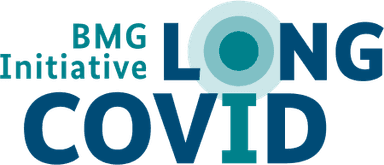Note: The following text is a guest article. They reflect the personal views of the author. The article is not an expression of opinion by the Federal Ministry of Health.
Guest article: Dr. med. (I) Klaus Reinhardt
Dr. Klaus Reinhardt, President of the German Medical Association, explains in this guest article what is needed from a medical, but also from a political, point of view to improve the diagnosis and treatment of Long COVID in Germany.
Published on: 08/03/2023

© Copyright: Hoffotografen
The Post-COVID-Syndrome (PCS; also “Long COVID”)
The Post-COVID syndrome, or PCS for short, as a severe consequence of SARS-CoV-2 infection, is the focus of a socio-political debate. In view of this, the Executive Board of the German Medical Association had commissioned its Scientific Advisory Board to review the current data situation and to prepare a statement. The starting point of our statement published in October 2022 is a definitional demarcation, especially from colloquial terms such as the term “Long COVID” coined on the internet, so that it is clear what we mean by PCS. Complaints lasting longer than 12 weeks after SARS-CoV-2 infection that occur in persons with a history of probable or confirmed SARS-CoV-2 infection and cannot be explained by another diagnosis, are referred to as PCS according to a definition developed by WHO.
Involve the professional expertise of the medical fraternity
On the basis of international data, it is becoming increasingly clear that up to 15 % of SARS-CoV-2 infected persons are affected by PCS. In mid-September 2022, WHO had confirmed this figure in a recent modulation and ascertained that up to 17 million people in the 53 Member States of the WHO/Europe Region had developed PCS during the first two years of the pandemic. Headlines like these make it clear that the issue is also being discussed internationally. We would like to bring in the professional expertise of the medical fraternity into this important debate. That is because we want to ensure that policy decisions are made on the basis of the best available evidence. Our statement is addressed to doctors, affected persons, the interested public and, last but not least, to politicians.
Become politically active now and set the course for dealing with PCS
Now is the right time to become politically active and set the course for the further handling of PCS. In particular, persons who are affected have a right to this, but so does everyone else. On one hand, it is about diagnosing and treating PCS in the best possible way. But on the other hand, it is also about better understanding the pathology and developing possible preventive measures. Our statement is intended to help ensure that the necessary steps are now taken to further improve the data situation on PCS, the care of affected persons, as well as to inform the people and for prevention.
We welcome the support programme for patients with PCS announced by the Federal Minister of Health, Prof. Dr. Karl Lauterbach, as a step in the right direction. It is important now to provide sufficient funding to be able to intensify research on PCS. This is because we need to better understand the pathology in order to be able to diagnose the disease and treat the affected patients in the best possible way.
Conclusions and recommendations
From the available scientific data, we derive the following Measures for dealing with PCS in the German health system:
Data situation: Representative, prospectively planned and registered studies and, if necessary, App-supported screenings for SARS-CoV-2 infection are necessary to better record the prevalence and to create the data basis for the early detection of PCS, the improvement of diagnostics and therapy as well as the development and establishment of adequate care structures for PCS patients.
Research: Interdisciplinary research collaborations are necessary to gain a complete picture of the disease and its psychosocial side effects, to understand the causes and risk factors for the development of PCS that have not been understood so far, and to develop effective treatment options. Here, capacities for basic research, clinical studies and care research must be built up. A national PCS network should be established that brings clinical structures and PCS centres into dialogue with existing research infrastructures and links them. The PCS network generates knowledge which, in the sense of translation, is carried beyond the level of the PCS centres into general practitioner and specialist outpatient care.
Care capacities: In order to treat the many PCS patients in the best possible way, regional PCS networks should be established involving existing structures and all sectors and providers of the health care system, including specialised rehabilitation facilities. The invoicing modalities for this need to be clarified. An extended ICD-10 coding for PCS with different organ manifestations must be established.
Networked care: Intersectoral care should be provided in a coordinated interplay between GP or paediatric and adolescent medical care, specialised medical treatment and specialised PCS centres. Structured diagnostic and therapy algorithms must be created for this purpose.
Information: In light of the continuing consequences of PCS for the affected persons and for society, the development of an information and training programme is essential, especially for doctors, members of other health care professions, patients, employers, schools and the general public. The interest groups of PCS patients should be involved in the infrastructures, communication processes and research concepts to be created.
Prevention: Due to the sometimes serious consequences of PCS for the health of the affected persons, it still seems advisable to keep SARS-CoV-2 infections low through appropriate preventive measures, which are adapted to the respective pandemic situation, and to promote the willingness of the population to be vaccinated in accordance with STIKO recommendations.
The medical fraternity is happy to continue to advise and support policy-makers in the implementation of these recommendations with its professional expertise.
Vita
Dr. med. (I) Klaus Reinhardt:
Dr. Klaus Reinhardt is a German specialist in general medicine and since 2011, President of the Hartmannbund. Since 2015, he has been a member of the German Medical Association Board, elected by the German Medical Congress, and since 2019 he has been President of the German Medical Association. Reinhardt is a specialist in general medicine and a family doctor in private practice in Bielefeld and, in addition to his professional commitment, has an up-to-date insight into medical practice and health care.
As President of the German Medical Association, Dr Klaus Reinhardt represents the professional policy interests of physicians in Germany and is particularly committed to medical self-employment and strong medical self-regulation. As a member of the Executive Board of the Scientific Advisory Board of the German Medical Association, it is also a matter of concern to him to further promote evidence-basing, especially on current topics such as post-COVID syndrome, both within medicine and - in line with the “Health-in-All-Policies” approach coined by the WHO - in society.
